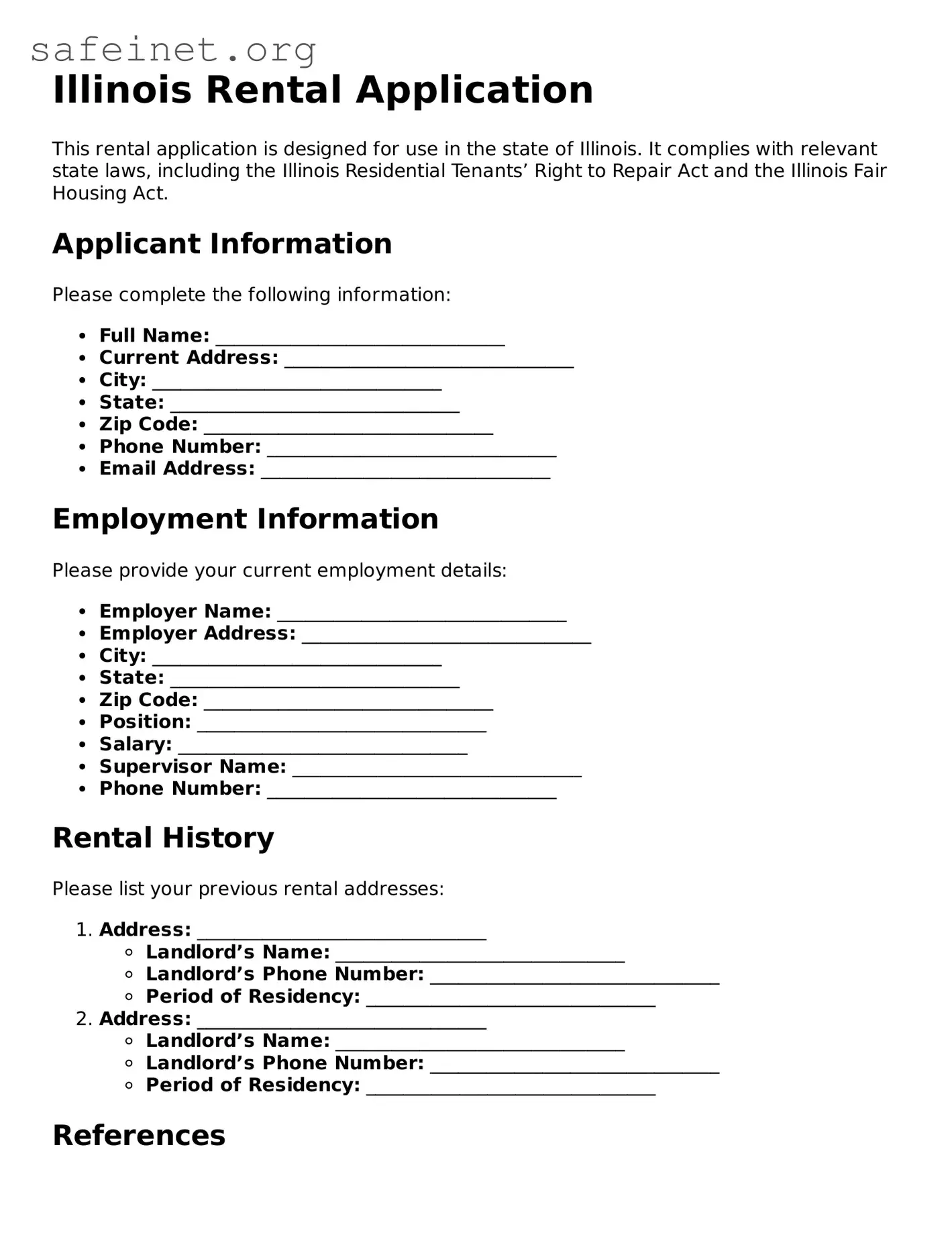Illinois Rental Application
This rental application is designed for use in the state of Illinois. It complies with relevant state laws, including the Illinois Residential Tenants’ Right to Repair Act and the Illinois Fair Housing Act.
Applicant Information
Please complete the following information:
- Full Name: _______________________________
- Current Address: _______________________________
- City: _______________________________
- State: _______________________________
- Zip Code: _______________________________
- Phone Number: _______________________________
- Email Address: _______________________________
Employment Information
Please provide your current employment details:
- Employer Name: _______________________________
- Employer Address: _______________________________
- City: _______________________________
- State: _______________________________
- Zip Code: _______________________________
- Position: _______________________________
- Salary: _______________________________
- Supervisor Name: _______________________________
- Phone Number: _______________________________
Rental History
Please list your previous rental addresses:
-
Address: _______________________________
- Landlord’s Name: _______________________________
- Landlord’s Phone Number: _______________________________
- Period of Residency: _______________________________
-
Address: _______________________________
- Landlord’s Name: _______________________________
- Landlord’s Phone Number: _______________________________
- Period of Residency: _______________________________
References
Please provide two personal or professional references:
-
Name: _______________________________
- Relationship: _______________________________
- Phone Number: _______________________________
-
Name: _______________________________
- Relationship: _______________________________
- Phone Number: _______________________________
Additional Information
Please provide any additional information that may be relevant:
- Are you a smoker? Yes / No
- Do you have pets? Yes / No
- If yes, please specify: _______________________________
Consent
By signing below, you authorize the landlord to conduct a background check and verify the information provided in this application.
Signature: _______________________________
Date: _______________________________
